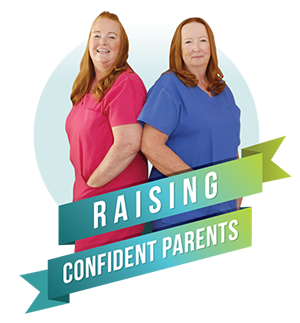It’s 2019…can women get fired simply because they’re pregnant?
It’s been illegal to discriminate against pregnant women in the workplace since the Pregnancy Discrimination Act was passed in 1978. From 1997 through 2011, nearly 6,000 federal pregnancy discrimination charges were filed with the EEOC and state or local FEPAs in fiscal year 2011—an almost 50 percent increase from the 4,000 complaints filed in fiscal year 1997.
Pregnant Women in the Workplace
Pregnant women deserve to be treated fairly if they decide to continue to work during their pregnancy. According to the Pregnancy Discrimination Act (PDA) of 1978, pregnant women in the workforce have rights. We interviewed employment attorney Susan Dawson, a partner at Waltz, Palmer & Dawson, to get answers to questions our expectant moms frequently ask.
Can my employer fire me because I am pregnant?
No, the Pregnancy Discrimination Act (PDA) is an amendment to Title VII of the Civil Rights Act of 1964. Discrimination on the basis of pregnancy, childbirth, or related medical conditions constitutes unlawful sex discrimination under Title VII. Women affected by pregnancy or related conditions must be treated in the same manner as other applicants or employees who are similar in their ability or inability to work.
How does the American Disability Act apply to pregnancy?
Although pregnancy itself is not a disability, temporary impairments related to pregnancy can be disabilities, such as pregnancy-related carpal tunnel syndrome, gestational diabetes, pregnancy-related sciatica, and preeclampsia. An employer may not discriminate against an individual whose pregnancy-related impairment is a disability under the ADA. When a disabled employee requests accommodation they feel are needed to allow them to perform their job, the employer must consider whether they are reasonable (in which case they must be made) or if the accommodation would result in significant difficulty or expense (“undue hardship”) (in which case they may offer alternative accommodation options). This is called the Interactive Process.
What are my legal options if my employer has discriminated against me because of my pregnancy?
One option that is available in each state is to file a Charge of Discrimination with your local Equal Employment Opportunities Commission office (EEOC).
Am I eligible for unpaid pregnancy leave under the FMLA?
Employers with 50 or more employees within 75 miles must provide unpaid FMLA leave to employees that have worked for their employer for at least 12 months and have worked at least 1,250 hours over the past 12 months. If qualified, then a mother can use the 12 weeks of leave allowed under FMLA for the birth or adoption of a child, for prenatal care and incapacity related to pregnancy, and for her own serious health condition following the birth of a child. (I want to be clear here that they don’t get 12 weeks just for this – they get 12 weeks for all FMLA leave – if they were using 4 of those weeks for another qualified leave then they only have 8 weeks left for pregnancy.)
Does the FMLA only apply to women?
A father can use FMLA leave for the birth of a child and to care for his spouse who is incapacitated (due to pregnancy or childbirth). If you are we got a book for you don’t qualify for FMLA leave because your employer does not qualify, look to your state laws. Some states have laws that require paternity leave be provided even when FMLA is not applicable.
Does FMLA provide same-sex partners the same benefits of unpaid leave?
Yes, in 2015 a Final Rule was announced which amended the definition of spouse under the Family and Medical Leave Act (FMLA) to a husband or wife as defined or recognized in the state where the individual was married (“place of celebration”), and specifically includes individuals in same-sex and common law marriages to include all individuals in legal marriages.
More information about FMLA can be found here:
www.dol.gov/whd/fmla/fact_sheets.htm
EEOC.gov Pregnancy Discrimination Charges
EEOC & FEPAs Combined: FY 1997 – FY 2011
By the way, we are excited to share some wonderful news with you! Did you know that we have authored a bestselling new book? Yes, it’s true! Raising Confident Parents: Secrets from Baby Nurses and Parents about Pregnancy, Infant Care and Achieving Sweet Dreams —To learn more about how Raising Confident Parents can help you with Pregnancy, what to bring to the hospital, what our veteran parents tell us are much have items for baby and so much more…


